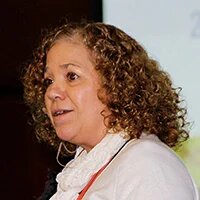It’s all about growing …
Patricia Urquiola, a prestigious designer in an interview in the Spanish weekly supplement, El Pais Semanal of 19 April 2015 (which I recommend reading) stated that “Every five years I come out of my comfort zone. These are not revolutions, but evolutions. I need to examine my life. “
We have forgotten about that. We want a stable and life-long job, no changes or developments, one from early youth to retirement. Now plunged in the hurricane of the paradigm shift of the misfortune called economic downturn which is altering the labour market, we return to natural life cycles in search of soul-ripping stability in liquid times of uncertain change.
We don’t know what the new “occupations” will bring the era of knowledge and robotics; we don’t know the new problems that we must face, nor the tools we will need to solve them. But something is clear for senior professionals, and for all professionals in general, these are times for reinventing ourselves: we cannot stick to the familiar although this has provided us moments of glory, and even if we enjoyed the benefits for so much time… it no longer works.
The old organizational structures are wobbling. The speed at which changes happen demands light and adaptive teams that dodge bureaucracy to seek quick response to customers and problems for greater competitive edge.
It will be difficult for massive offices or factories to emerge, the kind where work is compartmentalized in watertight silos such that the right hand does not know what the left hand is doing. Networking calls for collaboration, “coopetition“, “sharism“, connection—@AnacabeJuan responded to my tweet, “I am still studying. I will always be junior, but balding. This is spot on: to keep abreast, we have to start from scratch every day, fuelling tomorrow with questions, putting forward brand new ideas and projects to find the one that fits like a glove and throwing ourselves into it with the fervour of starting something new.
This is about coming out of our usual scenario and looking ahead fearlessly at the emerging “new collaborative economy”. It’s so new that it just crawls, barely babbling its first words, but an economy will inspire us to build our new life cycle in harmony with the new values and the new skills required.
Career paths are no longer linear; they need constant and profound transformation. In companies on the net the professional inserts into many transient circles formed by individuals, who come together to solve a problem, take on a project, and these groups dissolve as soon as the objective has been attained.
As mature people we have to race against time, go straight to the point and take on measured risks, be passionate about a project using the head rather than the heart like our accumulated experience reminds us.
This is about unlearning everything useless, obsolete and unnecessary, while making the most of the immense plasticity of the brain to redesign our new working and living environment as often it takes us.
We thought that life was an upward linear journey and we find ourselves in a spiral that takes us back to a starting point every now and then, initiating a cycle that brings us back to our personal reinvention again.
We have the experience of cycles we have already lived through; we have transited different stages and positions. It is time to become “agents of change” living as eternal apprentices, allowing ourselves to be pollinated by the new proposals and models that pop up everywhere, while we bring what we have so far learnt, tested and reflected upon to enrich the embryonic idea that started our new cycle.
The solid social structures of the twentieth century have become liquid, flexible and globalized thanks to the widespread use of information and communication technologies. The change in the way we relate with others, going beyond the boundaries of time and space, promotes “connected individualism” of which Patrice Flichy talks about. This is characterized by the transition from a labour model based on the definition of each job to a model based on individual competence and accountability for achieving goals and results.
This way employees and freelancers are also equally responsible for their personal competence and results. They are the business managers of their own lives with as much autonomy as possible and the widest network of contacts possible to resolve any problem outside their fields of expertise, in virtual communities within or outside the company worked for.
That makes us all entrepreneurs; starting a new professional adventure for every new project in a process of continual personal reinvention that requires constant learning and in which the experience amassed is another advantageous skill that sets us apart.






